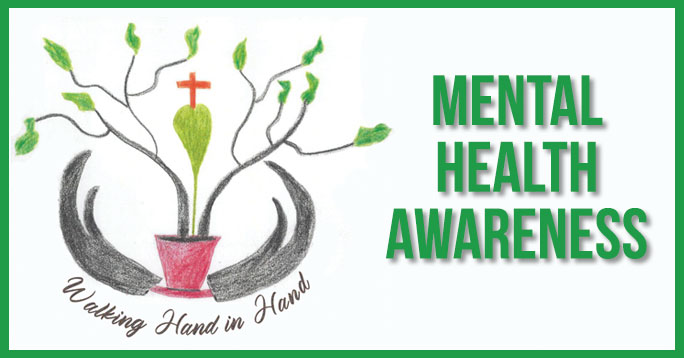
(By Rev. Alan F. Steinke, LCSW)
Much has been written about Covid’s impact on adolescents, the effects of lockdowns, remote learning, social distancing, masking, isolation, lack of privacy at home. But there is another pandemic among adolescents that goes largely unnoticed. It can be called“negativity overload.” When computers first became commonly available decades ago, sociologists predicted it would create an “information superhighway.” And so it has. A handheld cell phone has replaced and superseded information once available only in a complete set of the Encyclopedia Britannica. This is a miraculous and blessed advancement. Up to a point. Here’s why: it is estimated that the human brain is not fully developed until age 25. This means that adolescents are not yet equipped to process negative information and images as well as adults. This inevitably leads to a predisposition to anxiety and depression.
According to the National Institutes of Health, nearly one in three of all adolescents ages 13 to 18 will experience an anxiety disorder. These numbers have been rising steadily. Adolescents have been plunged into a sea of negative information overload.
For instance, an adolescent goes to a movie theater and before the feature, he will be treated to a dozen preview trailers. Most of these will be offerings from the Disney and Marvel studios, and will graphically display images of action films, which will be repel te with fire and blood and smoke, explosions and crashes, flying body parts and death. Or he could stay home and access the same or similar fare onAmazon, Netflix, Hulu and other streaming services. Or he could get out his handheld device and go to YouTube or TikTok and gain access to images of whatever in the world.
Adolescents by nature are curious. They have a penchant for exploring, experimenting, and testing limits. It’s a natural part of growing up. But they are easily overloaded with info and images that they are not ready to process to their benefit. This often results in anxiety and depression.
Beyond the entertainment field, they are exposed to massive amounts of negative reality reported by print and electronic media. They are not shielded from knowledge of school shootings, shootings in public places, terrorist attacks here and around the world, violence in the streets of American cities, chronic political contentiousness, racial tensions, the opioid overdose epidemic, the brutal invasion of the Ukraine— let these examples suffice, lest the reader be overloaded—but more could be added.
The question becomes: what can be done? We begin by bringing the adolescent ear to the message of the Gospel (Good News) of Jesus—His way, His truth, His life, and all the hope, and victory, and positivity it provides.
And much can be done at home. Talk with adolescents openly about their stressors. Try to see the world their way without judgment—which they will only hear as more negativity. Invite them to have a different, less automatic perspective. Teach coping skills. Encourage them to control what they can and not worry about the rest. Be careful—they will hear too much positive information overload as baloney, an attempt to give easy answers to hard questions. And remember—parents, teachers, pastors, and all adults, as you navigate these undulating waters—Lutheran Counseling Center is well-equipped with skilled and compassionate counselors eager to assist.
Rev. Alan F. Steinke, LCSW is a Clinical Supervisor for Lutheran Counseling Center. who counsels children, adults, and couples.
Please visit our website at: www.lccny.org for more information.
For a counseling appointment, call LCC at 1-800-317-1173. All sessions are virtual.
